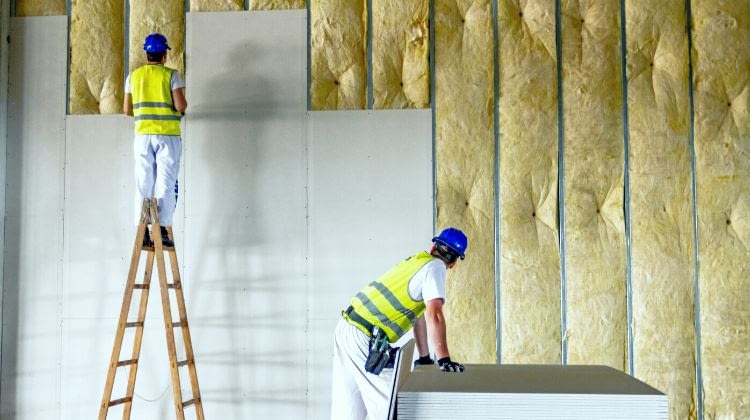
Any seasoned developer or contractor knows the ins and outs of working on commercial and residential projects. Being experienced means they’ve worked on anything from a basement renovation to a construction job of new commercial property. But being experienced doesn’t mean you can’t learn anything new. Here are four tips for handling large-scale drywalling jobs.
Consider Getting a Crew
Some jobs require more than one person. Occasionally, having too many hands in the kitchen could mess with the flow, but that’s why you need to vet your team members.
Depending on the size of the job, you may not need more than one other person. But you need to ensure that they do the same quality of work as you. Hiring someone with different standards could throw off the flow and overall look of the project. You never want inconsistencies in a final project.
Get More for Less
Get the right amount of drywall mud. Some compounds are cheaper than others. Getting pre-mixed mud does save some time, but it could also be more expensive. Get a compound you’re comfortable with, along with a bucket and water.
Lift the box of mud and drop about half into the bucket. You don’t want to mix the whole compound that same day unless you plan to use it all on that day. Leaving the mud to get thick and stuck isn’t ideal, and it will be difficult to get it to the desired consistency again.
Choose the Right Tools
The right tool can make the difference between a long day and a productive day. Working on large-scale contracting jobs means you need the equipment and materials to handle the job. Find out if an automatic drywall taper is right for your project.
You might find a drywall taper is necessary for a large-scale job because it’s efficient and can handle some of the more difficult places for you. Additionally, it’s always a good idea to work with tools that take off some of the pressure and strain.
Divide Into Sections
Break the job down into sections. Trying to tackle everything all at once will get overwhelming. When you approach the job in segments, it makes things a little more digestible. You can create a game plan for each section.
Smaller sections also work better for scheduling. Dedicate a certain number of hours to each section to make the process go a little faster. It will certainly make it more productive.
It might sound too good to be true, but these four tips will make handling large-scale drywalling jobs easier.